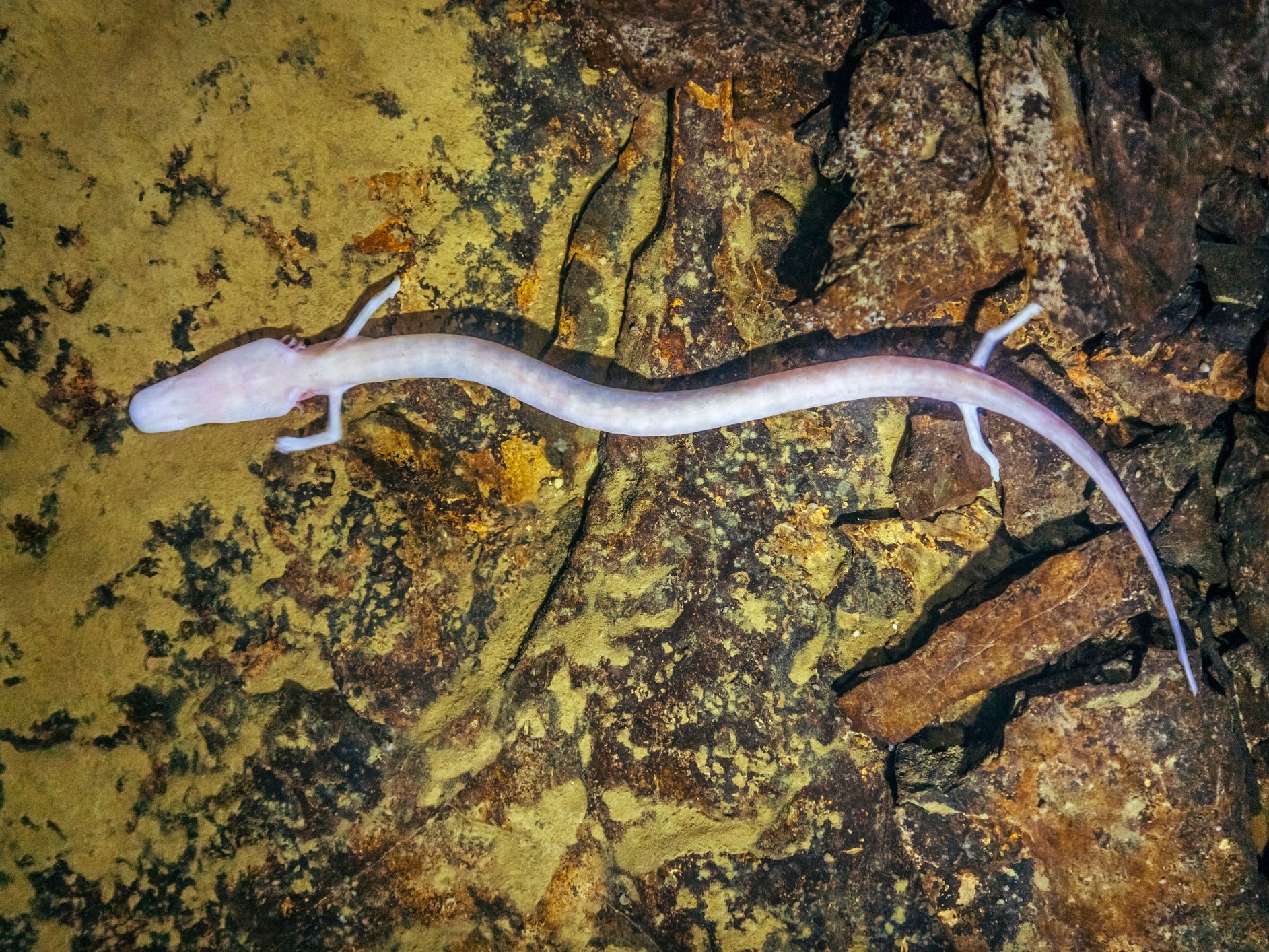Rare European cave salamander stayed in the same spot for seven years
Hold still. This creature was recorded going 2,569 days without moving

Your support helps us to tell the story
From reproductive rights to climate change to Big Tech, The Independent is on the ground when the story is developing. Whether it's investigating the financials of Elon Musk's pro-Trump PAC or producing our latest documentary, 'The A Word', which shines a light on the American women fighting for reproductive rights, we know how important it is to parse out the facts from the messaging.
At such a critical moment in US history, we need reporters on the ground. Your donation allows us to keep sending journalists to speak to both sides of the story.
The Independent is trusted by Americans across the entire political spectrum. And unlike many other quality news outlets, we choose not to lock Americans out of our reporting and analysis with paywalls. We believe quality journalism should be available to everyone, paid for by those who can afford it.
Your support makes all the difference.Salamanders play the long game, with many species living surprisingly long lives. But among these enduring amphibians, there is one outlier – the olm, also known as the proteus.
It has been well documented that these small white cave-dwelling salamanders can live well into their hundreds, but scientists have now gained new insight into the creatures’ glacial pace of life.
In a study which makes sloths look recklessly hyperactive, divers documenting the movements of olms in Herzegovinian caves found that over a decade, individuals tended to move less than 10 metres in total.
However, one extraordinarily inert individual was found not to have bothered moving once in over seven years.
To be fair to the “slimy creepy crawlies”, as they are known in Slovenia, they are not highly gregarious, have no predators, are highly resistant to starvation – able to go without food for several years – are blind and live in complete darkness underground and underwater.
They are apparently only compelled to move in order to mate, which they do on average around once every 12.5 years.
In the caves in which they dwell food is typically scarce, but when they are able, olms feed on small crustaceans such as small shrimps, snails and occasionally insects.
The scientists, led by Gergely Balázs of Eötvös Loránd University, Hungary, studied a population of olms living in aquatic cave systems in an eastern Herzegovinian region in Bosnia and Herzegovina.
The diving team used a “capture-mark-recapture” technique to keep tabs on individual olms’ movements over eight years.
“They are hanging around, doing almost nothing,” Dr Balázs told The New Scientist.
According to the research paper, published in the Journal of Zoology, “most studies carried out on the species to date are based on laboratory studies, resulting in a severe lack of ecological data from natural populations studied in their original habitat.”
The authors write: “Aquatic cave ecosystems are important for evolutionary ecologists as an overlooked model system and for conservation biologists as a vulnerable and unique habitat, but we also need to improve our understanding of how these unique ecosystems perform ecological services that benefit ecosystems beyond cave systems, including human access to fresh water.”
The team said studying the creatures may also help to track human impacts on aquatic cave ecosystems.
“The low reproductive activity of the species together with the reported extreme site fidelity makes this top predator of aquatic cave communities highly vulnerable and a sensitive bio‐indicator of habitat‐changing human activities,” the paper says.
Join our commenting forum
Join thought-provoking conversations, follow other Independent readers and see their replies
Comments